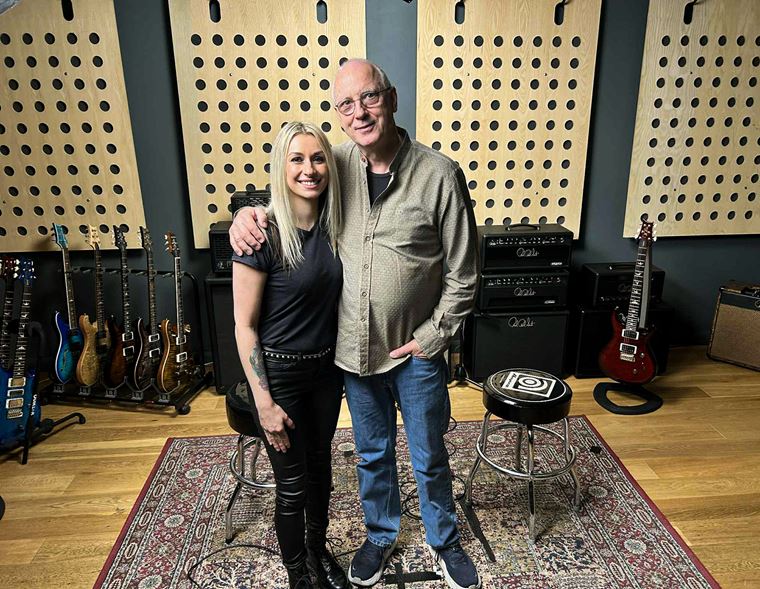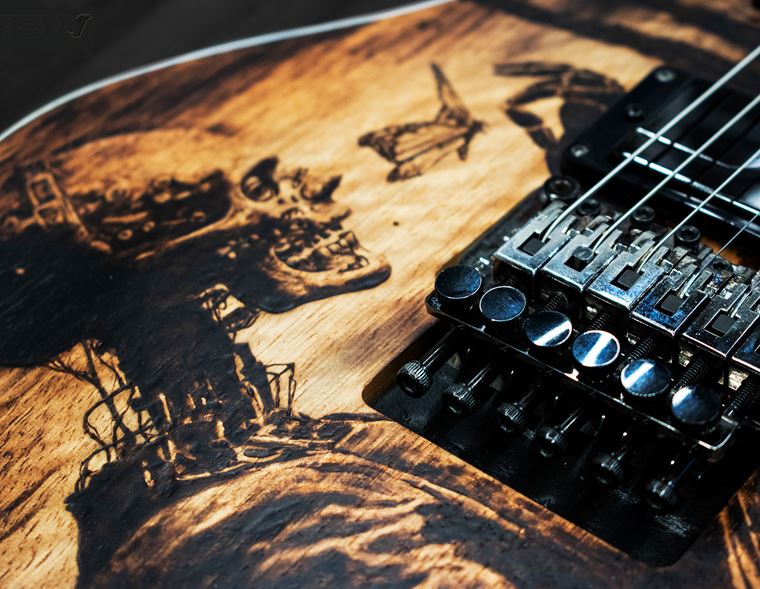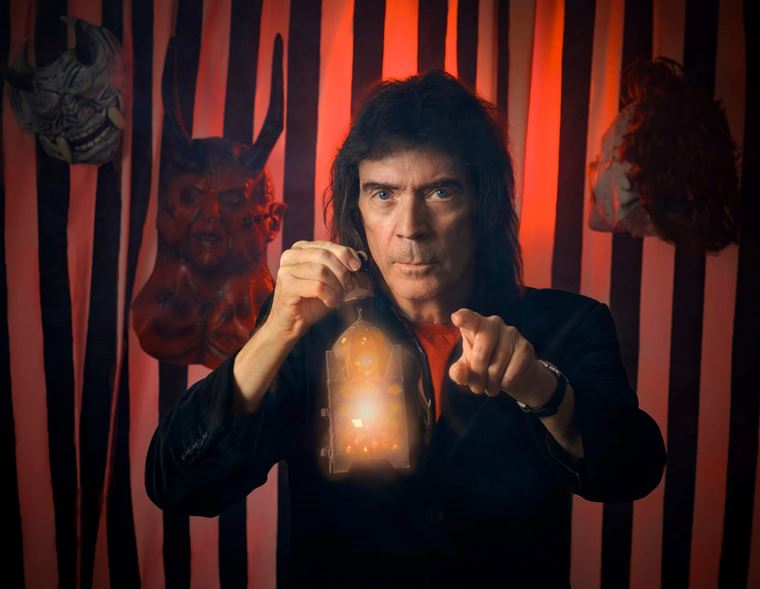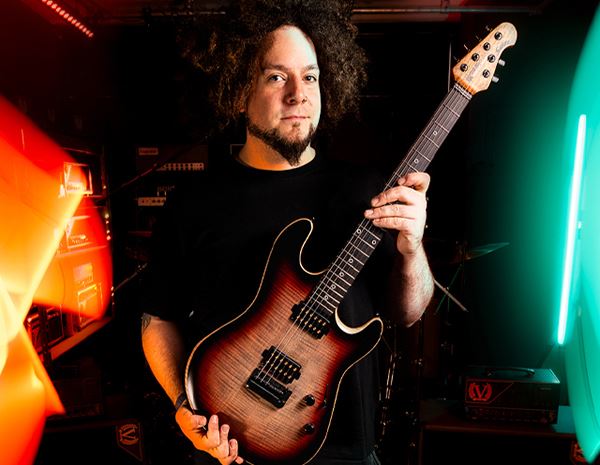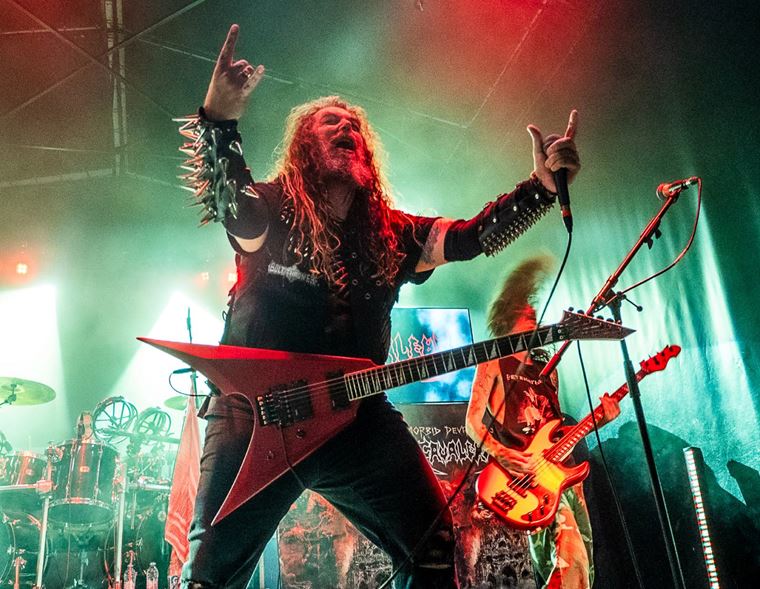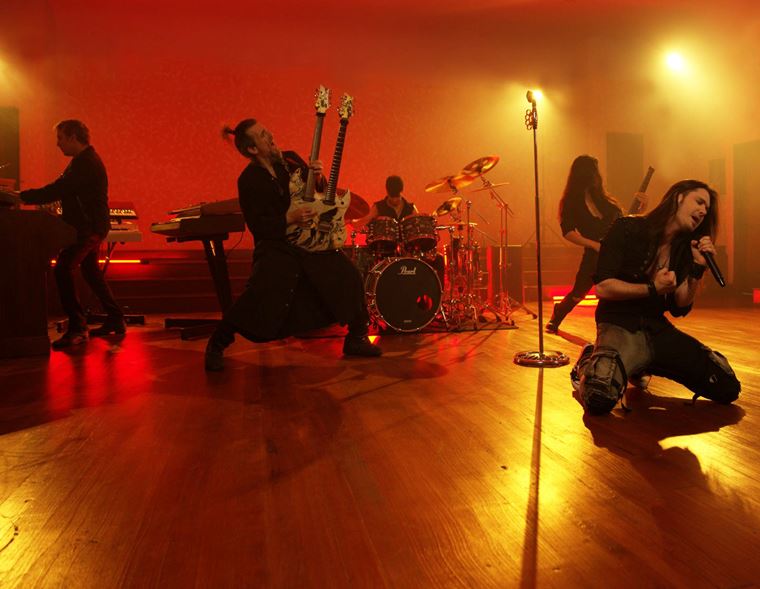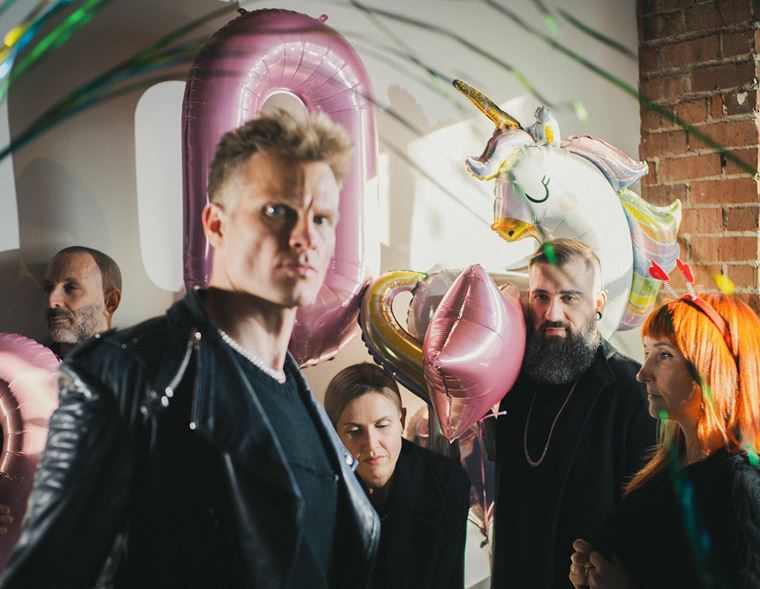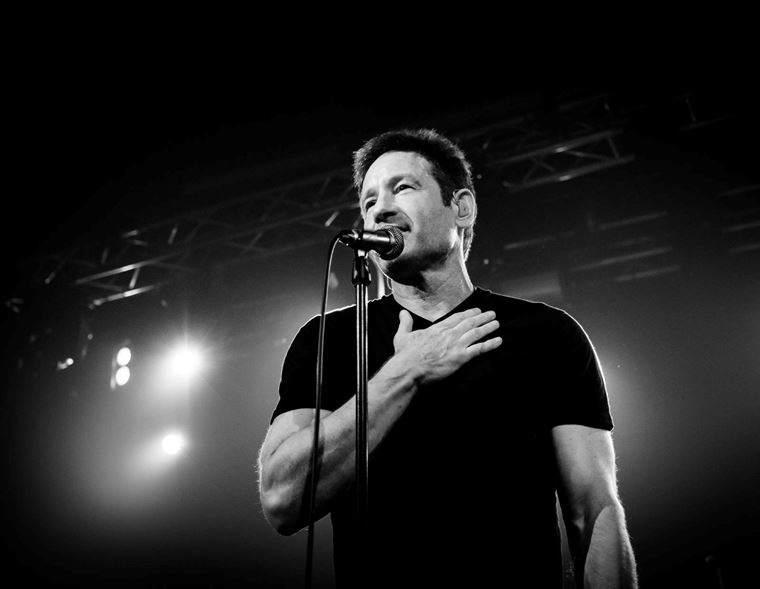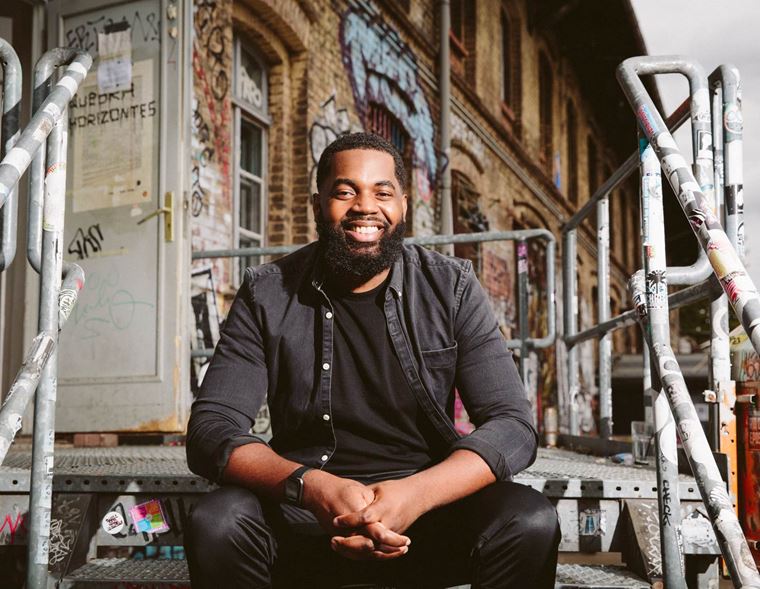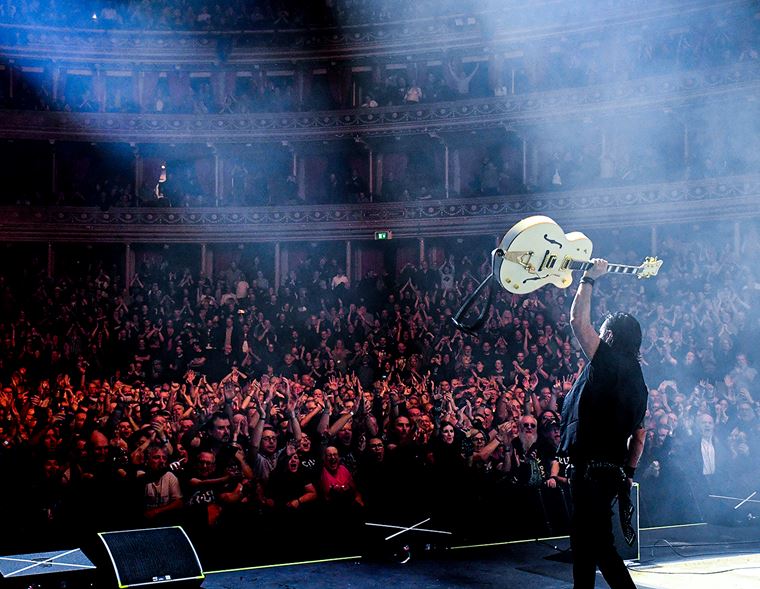Steve Howe: YES, Solo Albums and Self-Awareness
Steve Howe hardly needs an introduction.
The master guitarist and co-songwriter for Progressive Rock legends Yes has enthralled millions of music fans for over 50 years with his wonderful, unique writing and playing.
Though not quite an original member of Yes (he joined in 1970 in time to co-write The Yes Album, the band’s third), Howe is perhaps their most iconic member. The image of an elfin figure, plucking away on a large Gibson hollow body, bathed in psychedelic lights, is one beloved by all Yes fans.
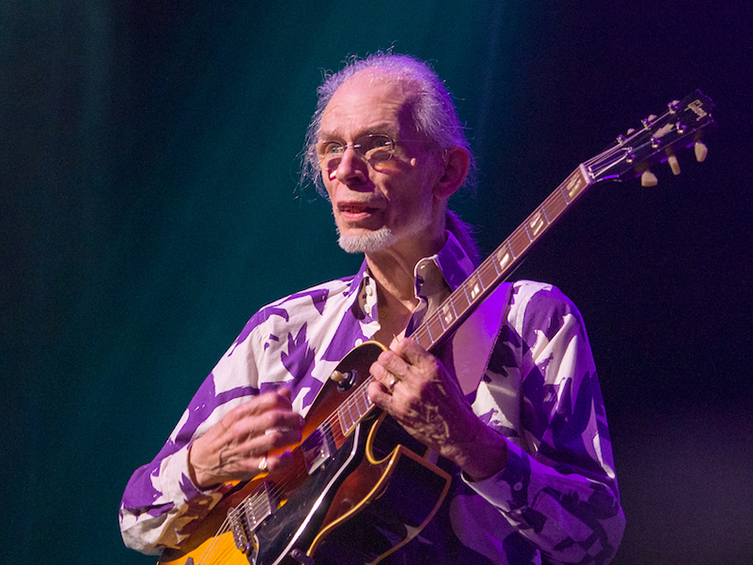
(photo: Gottlieb Bros)
Through a suite of ground-breaking and quite wonderful albums in the seventies that included Fragile, Close to the Edge and Tales From Topographic Oceans, Yes charted unexplored musical continents, and were happy to take us along for the ride. Theirs is a magical world of far-off landscapes, glowing forests and fantasy seascapes, all soundtracked by otherworldly, luminous music that brings in folk, rock, classical, mediaeval and straight-up fantastical elements, weaving them all into a rich tapestry and offering them up as sonic voyages for listeners keen to take a deeper musical trip.
Through it all, Steve Howe’s magnetic playing has provided anchor and decoration, direction and respite, bringing endless colours form not only electric guitar but acoustic, 12-string, lap-steel and much more. His style is deliberately removed from stock Pentatonic patterns, and is as informed by Jazz and Classical as it is by Rock. He’s an incredible player and an inspiration to many players looking for more melodic, left-field styles to enjoy.
As well as being the significant creative force if Yes, Steve also has a healthy solo career, with a brand new album, Love Is, released this year. We were lucky enough to secure a precious early afternoon time slot for a phone call with Steve. We found him to be excellent company: cheerful, full of excellent advice and happy to chat about guitars and a myriad of other subjects. Kindly, he let us run past our allotted 20 mins but quite a measure, so we have lots of great Steve Howe insights for you here!
Steve Howe Interview
Steve Howe: Hi Ray!
guitarguitar: Hi Steve, how are you?
SH: Not bad, how are you?
GG: Yeah, so far, so good! So, this is for guitarguitar, so I would obviously love to chat guitars with you but, I’ve got a few questions about your new album first of all, if that’s okay?
SH: Yeah, sure.
GG: Thank you. So, ‘Love Is’ is your first solo album in 9 years. It has a strong ecological theme running through it: was now just the right time to set these songs loose?
SH: (laughs) Yeah, well I mean, the journey to finishing it was...I wouldn’t say delayed, but it was postponed because of my work with Yes and at the time with Asia, and the solo tours that I did. So, I’ve been very busy over those years and I’ve just had it on the creative backburner, to see what sort of album I could put together. It was all finished at the end of last year, before we knew anything about this year and basically, I suppose, they are predominant themes, you know, in my career. Being a hippy in ’67 (laughs), there you go! We valued love and we valued animals and we valued nature, and so I guess they’ve been running through my blood all that time.
GG: It feels perhaps now more than any other time, with Covid-19 running rampant throughout the world, it’s an important message to remind people about, when all this madness is happening?
SH: I guess it is, yeah!
GG: There’s also a kind of self-awareness, and a questioning of identity in some of the lyrics. Do you think that’s something that has come to you over the years through life experience?
SH: Well, I mean, I don’t think you can help doing that, if you’ve clocked up a few years. That happens! I guess that I explore things that happen to me in a way that comes through, to some extent, in the lyrics. Um, but, you know, I don’t know exactly why I do what I do, but it comes, and I do this! So, Love Is, is another vehicle for me to explore somewhat of my own experience, but, you know, what the pleasure of others! I don’t want to make it a sort of melancholic cry for help (laughs), I’ve tried for a positive outlook where things can be better. Often, people miss the opportunity to make their lives better, and, you know, it’s their choice, so basically if you can take control over some of the parts of your life, then...maybe not other people...
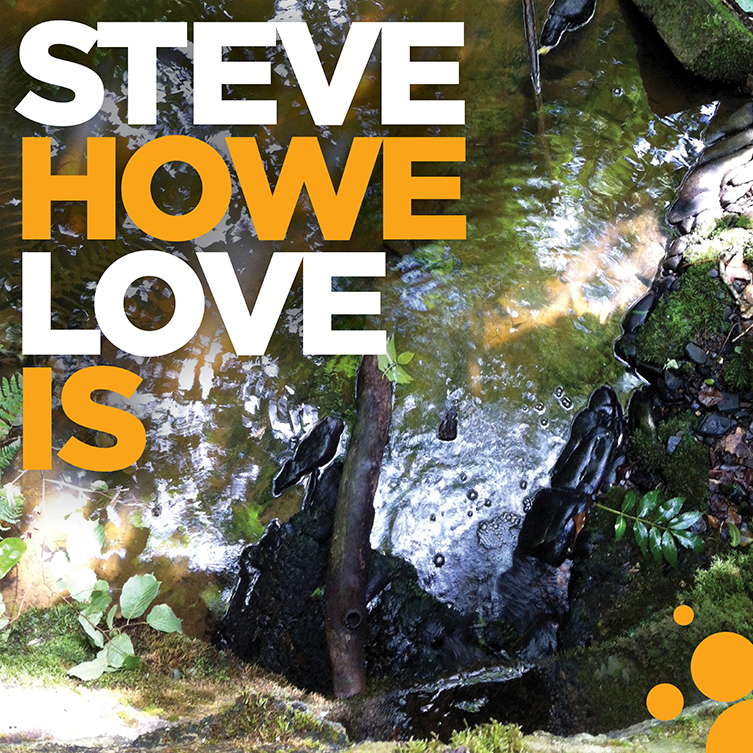
GG: Yes.
SH: But some of your own life is steerable by your own determination. So, I guess people might need reminding of that, or maybe I do! (laughs)
GG: Maybe so, but either way, it’s a very useful message to have out there. One other thing that I wondered came perhaps with experience was: are you maybe more comfortable now as a lead singer than you might have been in the past?
SH: Well yeah, I mean, since I had a singing lesson in the early 80s, I realised that there was something that you can do in the way of preparation to enable you to sing as well as you are able to. And also, you know, I’ve never tried to be a Mario Lanza/Freddie Mercury...all the great singers: I’d be content to be a Bob Dylan-type (laughs), which isn’t derogatory of him! I think expression is what I value, and I’m not sure I do a lot of that, really. I suppose I hope I do! But yeah, I’ve gotten more comfortable and I’ll sing on stage and I enjoy the performance angle, but when it comes to the studio and singing, you should be able to do something that is worthy to the idea in general. I guess I am more confident, but that’s more partly because I’ve learned my range and I’ve got Jon Davison (Yes vocalist) singing with me on this, he’s also playing bass on the songs. Basically, we did a team-up on the vocals, so that only enhances what I do.
GG: Yeah, ok! There’s a really lovely lyric in the song ‘See Me Through’, which goes, ‘reserve your right to believe in things that science can’t prove’. Going back to what you mentioned yourself about being an old hippy back in the day, do you think we’ve come too far away from nature, spirituality and maybe a deeper meaning to a lot of life in this current era?
SH: What I’d say is, science is all very well and science is in our lives all the time, not just in technology, but just through the learning curve that science has brought. I’ve found it very interesting, but I did notice a very distinct avoidance of acceptance of anything natural. Science is trying to look at ‘what is nature’, you know, and how to describe it, and the way they’ve done that is to completely avoid anything that’s slightly, if you like, mystical, or unusual or unexplainable. This came through in a song I did, ‘Blinded by Science’, which was one of my first clear shots at science, to say that I’d stopped reading New Scientist - and I do read selected scientific books – but basically, I get horrified when they can ignore - because they can’t explain, they’ve got to deny – but what science should be doing is having an open mind to things they can’t explain. More and more of the times we find (laughs) that we can’t explain what’s going on!
GG: Yes, definitely!
SH: You know, I’m talking about homeopathy, naturopathic medicines...I’m talking about meditation particularly. It’s completely ignored: you could read a whole book about the mind...
GG: Mmm...
SH: ...and they never mention meditation! (laughs) It’s like, ‘what, hang on! But that’s a special use of the mind! It’s a special sense of control, of ownership: a personal improvement scheme, and it’s just ignored. So, that’s definitely what that means: if you only want to believe in the things science does, you’re actually going to cut out half of your potential because the other half is more mystical, it’s less defined, it’s unexplained, I mean, they could talk about the mind for 350 pages and they can never really talk about anything definite.
Because of the things that are going on, on top of the physical, they’ve not been able to explain, really, what consciousness is. And I hope maybe they don’t! I’m not waiting for them to tell me: I’m here now and living in the moment is an important part of enjoying life. So, if you’re constantly gonna wonder why you’re thinking this or why you’re doing that, sure, do a fair bit of self-analysis about your behaviour and what you say to other people, and how well, how loving you treat other people. But then again, science has blindsided the whole area that was important in 1967. It was important to me in 1983 when I started doing meditation every day, and being a vegetarian, ten years before that, taught me that science is all very well; antibiotics are all very well, but watch out! Don’t rely on that pill! The pill is a myth. Health, stamina, the immune system and all that is about you doing the right things: getting exercise, eating good food, and not indulging too much in things that’ll maybe distract you.
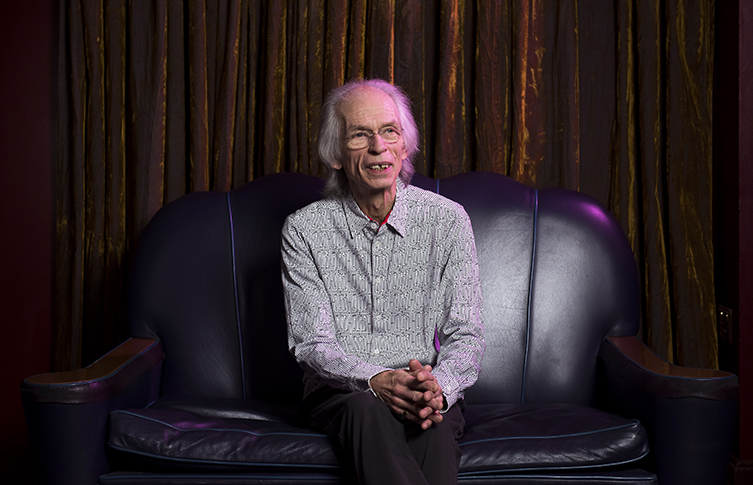
(Photo: Will Ireland)
GG: That’s some fantastic advice, Steve! I was speaking to your friend Steve Hackett last week, whose also an advocate of TM (transcendental meditation) and I didn’t get the opportunity to ask him, but since I have you: from your perspective, you’d you say that it’s a beneficial thing for a musician to learn and do?
SH: Oh yeah, but not just musicians: everybody. It’s useful for everybody, but then again, I’m not saying that everybody should go out and do it. Everyone should find something that allows them to...I mean, some people it seems either avoid it or just can’t accept that they can go into an altered state, and hopefully they instead find it in gardening, or swimming, or cycling...something that stops them from thinking about the day to day factors. If you don’t do that every day, then the day to day factors will build up so much that you can’t cope so well. So it’s definitely helped me, as a musician, and I guess it’s helped me in my life immensely, but then again I can’t cite what, other than my sense of self control, or my sense of...a lot of things! But just my determination to use my time well (laughs), to cover it all in one sentence, as such. Just to use your time well.
GG: That’s a great way to put it. Okay, well, let us move across to guitars, if we may! Over the years, I’ve noticed that for particular periods, you tend to favour one guitar for an album. For example, the Gibson ES-5 Switchmaster on Fragile and the ES-345 Stereo on Close to the Edge. On the notes for this record, it seems that the guitar that came out on top is a Gibson Les Paul Junior, is that right?
SH: It’s one of the key guitars, yeah! It’s funny that: it’s a simple guitar – it’s a beautiful ’55 – and I’ve played it ever since Tales from Topographic Oceans, where it featured on sides 2,3 and 4 most of the time. I found that, ‘Wow, I can play this little guitar well: I’m liking this! Stop me liking it! (laughs) So, my enjoyment for different guitars is always kind of shifting, but I guess that guitar had become part of that mainstay/established guitar to turn to, particularly for when I was building up a track or looking for things to kind of do, in a workman-like way. I’ll do a lot of stuff, but every now and then I’ll launch into some improv and do some parts on it. There are a few guitars that do that, and it’s definitely one of them, yeah.
"If you only believe in the things science does, you're actually going to cut out half of your potential"
GG: So, I take it it’s almost like a sort of instinctive happenstance? You happen to be reaching for a guitar to play, and one will suggest itself in this manner, is this how it happens?
SH: Well, yeah: I guess I get this idea in my head that there is a spontaneous choice. You know, there’s some equations about how when people hum and ha about something, it’s the first thing they thought, usually ends up, months later (laughs), being the right thing. So, I go with that instinct. It’s really weird: I’ll be sitting there listening to some music, or building some music and I’ll come to the point where, whether it’s with the band or it’s solo, whatever it is, and there’s either an obvious reason why I’m playing the ES-175 – you know, if I’m in the Steve Howe Trio mode, I generally play the guitar – and quite often with Yes in the early days. Having a choice of guitars is distracting, and sometimes I wanna get back to my key guitars! Well, funnily enough, the Les Paul Junior is one of those, but basically, it’s more about my own sense of sound, I think. Obviously, if you hear something that gonna be steel (lap or pedal steel guitar - Ray), I know it’s gonna be a steel. I just kind of allow myself that choice.
I mean, I’m very lucky to have a collection, and I try things, sometimes, that don’t work out so well, but also there is a practicality factor about it that’s very big about a guitar like that. It’s the reason I use a Steinberger: I can sit around for hours noodling around on it and it just sits there (laughs)! If you’ve got a full-bodied guitar, it’s not quite so easy! Full-bodied guitars are cumbersome at times, but that doesn’t put me off playing them! But it keeps them in reserve for when I’m doing particular guitar breaks and melodies, when I want that sound.
So yeah, it’s really just an instinct that I’ve been following, and I guess it’s quite often the first distinction of, Gibson, Fender, Gretsch: which of the electric sounds would I like to hear, then a particular guitar might come. It’s a hard thing to explain, but it’s been going on all the time! (laughs)
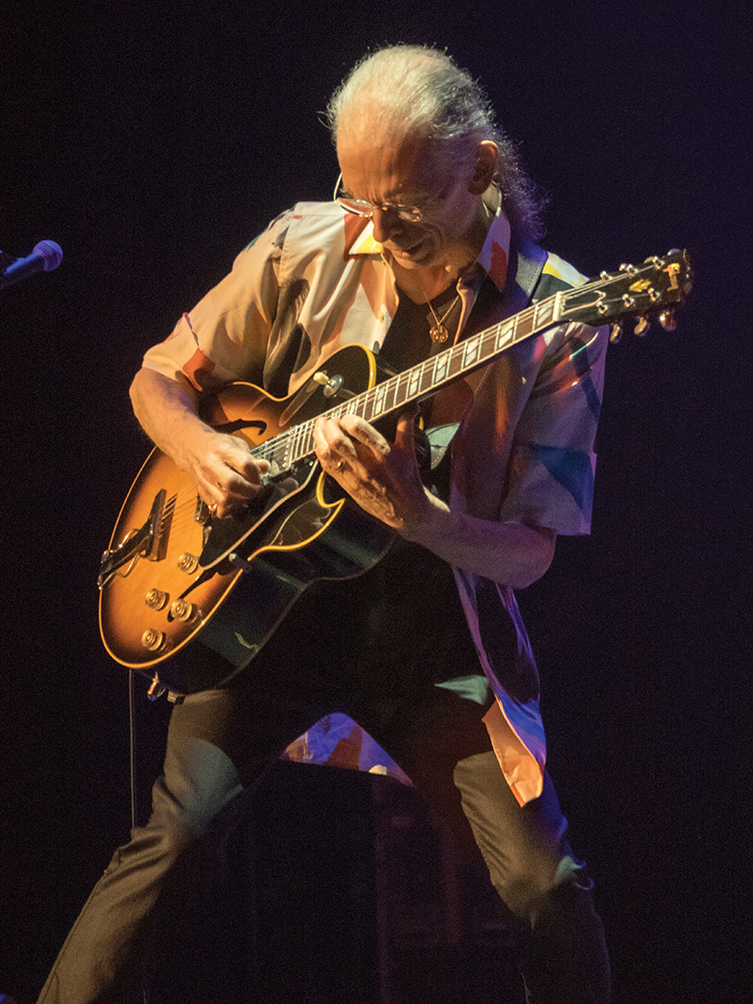
(Photo: Gottlieb Bros)
GG: I’m quite glad to hear that you find it quite distracting sometimes, because I can certainly spend too long going back and forth between the Les Paul and the Strat, trying to align my headspace rather than just getting on with playing!
SH: You mean looking at switching guitars, to find what works?
GG: Sometimes even just aesthetically: whatever is working for me that day, and then interacting with it, you know?
SH: That’s right: I agree completely! I mean, what’s working is working! (laughs) You don’t stop to change: you don’t change horses midstream!
GG: True.
SH: You know? What’s lovely though, is, sometimes when I’m constructing a track, I don’t play all the guitar all the way through, all at once. I might pick the areas I really know and have some idea of what to do. I record those and then I look at others and go, ‘oh, there’s an opportunity to play, say, the Steinberger 12 string on that!’. So, then I insert the 12-string sound somewhere else in the song where there isn’t any electric yet. So that’s the way I built up my texturing approach. Sometimes they overlap, and your 12-string keeps going while the Les Paul Junior’s ploughing into something, but maybe not! Maybe they’ll have this sort of corridor in their moment in the track, where they do something I like and that’s how, I suppose, I endorse my own choices, but making them work.
"You could put 60 notes in the bar if you want to, but the thing that gets through, and the thing I've always loved, is melody"
GG: Yes, absolutely. Putting it into practice proves it. One of the things I’ve always really loved about your guitar playing is that you’ve always seemed to favour melody over needless flash, even though obviously you’re very capable of it. Do you have any particular pieces of advice you could share to other players who maybe want to be more melodic? Or perhaps more creative with their melodies?
SH: Um, I don’t know where to start, really! (laughs) I’ll try to keep it in a sensible scale of answer, but I guess, I mean it’s a lot about who you are and what you think, along the lines of what you do and what ideas you’re lucky enough to come up with. Basically, when that melody strikes...I’ll tell you it’s about 50/50. I might have the melody and the chords and that’ll be great, but often, I’ll develop that melody: I’ll find it within improvisation. So, quite often, it’s come from improvisation. I’ve done some selections, all these takes, and then suddenly thought, ‘Ah, it’s that thing I keep playing! That’s it!’ You know? And I just kind of move into either re-recording that or using the parts that I decided are the melodic side.
I think that Chet Atkins was always a very melodic improviser. In fact, improvisation, I think, should be melodic. You could put 60 notes in the bar if you want to (laughs), but the thing that gets through, and the thing that I’ve always loved, is melody. So, Chet was great, I mean, when I hear Wes (Montgomery) or Tal Farlow, I don’t think they’re just improvising: in a way, I think they’re inventing melody, because melody goes through this sequence, from the key melody, the melody of the tune, it’s a development. They are now developing that melody, so it’s always got melody, but it’s about how far you go away from it, like comparing Vivaldi to Beethoven, and Beethoven to Stockhausen.
GG: Yes indeed.

(photo: Gottlieb Bros)
SH: I mean, there are huge leaps in musical style and they’re all about exploring. Certainly, melody kind of laughs with me and yet, it’s kinda what I’m looking for in my playing a lot more, so I guess, if you’re looking for it, and you have a good look around (laughs), you might find it! I don’t know if there’s any other way of thinking about it, though I suppose melody has to have a kind of reason to hang in there. It can’t be just too random and too changeable. Melody is a slightly formulaic way of saying ‘this is how I like these turns; this is what interests me’. But then, you know, move on from it, develop it. But yeah, I like to think I’m a fairly melodic guitarist, that’s where I come from.
GG: Yes, certainly! So, one thing I’m interested in asking about is plectrums. Because you play quite a lot of different types of instruments, do you tend to have a selection of plectrums that you use for different purposes?
SH: Right, I’ll give you brief run through that, because it’s not been a very static thing, well, not until the last ten years. Basically, in the early days, I met somebody who made their own plectrums. They were very thin and hard, and his name was Tony: he worked at Sound...something, in Shaftesbury Avenue. He made his own special plecs. So anyway, there was this weird situation right through the early period of Yes, where I was using a fat at one end, thin at the other, really small kind of like button-like plectrum. I did much of my classic stuff with these plectrums, and I don’t know how I got a bright enough sound! (laughs) It’s partly why my sound wasn’t twangy and bright, because it was kind of thick and deep. So, along the way, I got tired of relying on these picks, and I was still using them right until the 80s, so I was suing all sorts of models of these picks and then I found the Fender Medium, sort of heart-shaped plectrum, not the very small one, the next size up. For many years, for the next decade or so, I used that.
"Improvisation, I think, should be melodic"
Then what I did was, I’m lucky enough to get, through my guitar tech, a guy come to me who’d make me quality picks, We tested their plastics and went, ‘no, don’t like them, too thick blah blah blah’, and we basically came up with s Steve Howe pick, you know, which is what I use all the time. Now that is much like a Fender Medium tortoiseshell looking, heart-shaped size, medium weight. It’s pretty much like that. Now, I was surprised at myself, for getting over all this finickiness about what sort of plectrum I used, so what I did was use that plectrum exclusively on all plectrum work: steel, touch of mandolin, where I’d turn the pick on its side and use the opposite end. But all the time, acoustic or electric, I’ll be using what we could call the Steve Howe special, but really, it’s very close to a Fender Medium.
I’m really happy with that, because having different picks for different things is really annoying (laughs). Mind you, there’s nothing that beats playing with your fingers, which isn’t something I do an immense amount, but the tune ‘Solitaire’ from the album Fly from Here is actually played on a Martin but with my fingers. And I know that it’s such a good thing to do! (laughs) It’s so good, but I certainly rarely play an electric with my fingers. You get a wonderful sound, but the things I need to do on a guitar are quite varied: you know, from chordal stuff up to two string stuff, so like Albert Lee, when I first saw him, both he and I pick with our second finger while holding a plectrum, as opposed to having a thumb pick and picking with the index and second finger. I mean, I wish I could play with a thumb pick! It’s like, I wish I could play with headphones on, but I can’t! (laughs) It’s just alien to me to have something stuck in my ears or stuck round my thumb, so I’m really, really happy that I don’t have to think about picks anymore, I just go for a pick, and (laughs) it’s the same pick all the time!
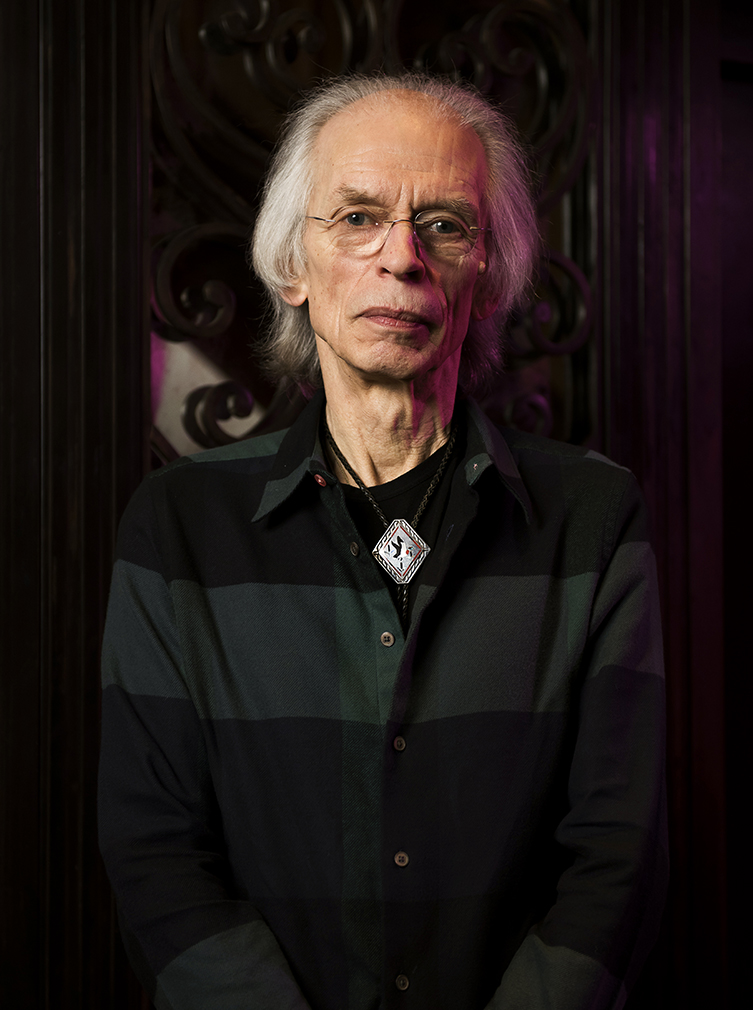
(photo: Will Ireland)
GG: I really glad I asked that! It’s something I ask all artists, but I don’t normally get such a brilliant answer, so thanks! Yeah, so just one last question to finish things off, if that’s okay?
SH: Yeah!
GG: Lots of plans have been derailed because of the Coronavirus. So, will you be doing what most bands are doing and shifting this year’s touring to 2021?
"Popular musicians are being completely underrepresented in this world"
SH: Well, we are praying that that is the reality. That’s what we’ve done: we’ve shifted all the tours down, or really, all the European and UK dates. We even found we were lucky enough to get another Albert Hall, which was very, very lucky, because I think it’s one of their anniversaries next year. There’s not a lot of dates available. So, we’ve been having to move it down. Obviously, we’re all performers: we all love performing and we don’t...you know, I’ve been through some hard times thinking to myself, ‘... how can I cope with not performing?’ (laughs) It just came naturally to me and I love it! It’s worth going through the hell of hotels, travel, all that – which it is, hell – but it’s worth going through all that, because performing is a cornerstone of what a musician can do. But, having said that, the opportunity to go into the studio – Yes will make an announcement in a few weeks about what we’re tentatively, well not so tentatively: tentative at the moment – but yeah, sharing some songs, looking at material...because, for a good album, there’s no way you can do that quick. Unless you’re on a magic hiatus, like Yes were when we made The Yes Album, Fragile, Close to the Edge and Topographic Oceans! I still think to myself how amazing that was!
But things are much different now, people live in different countries, and there are not so many opportunities, so one has to sort of plan. But certainly, even in my own writing and recording work, this is gonna be a golden opportunity for that, and I daresay a lot of musicians will turn to their recording system and think, ‘well: I could do some more!’
GG: I hope so!
SH: As opposed to, ‘I haven’t got time to do some more, I’m on tour!’ So, it is a great loss, I think it’s a great loss for us, but particularly for our audience, or the audience who go out to enjoy anybody’s music. I know Radio 3 puts a lot of emphasis on Classic musicians, I’d like to say, I think popular musicians are completely being underrepresented in this world. Not to say that I’m out pleading, begging on the streets but basically, there are a lot of musicians who virtually are because of this, and they’re not classical, they’re the mainstream, as I’d say we are, we’re into regular music, not classical – we don’t play Shostakovich – but basically, we are not being represented in any way at all. Now, that’s maybe not so surprising, that those who are independent now have to be even more (laughs) independent because there is really no voice! I’m glad that classical music has a voice but considering that there aren’t going to be any theatres open in London all year, it’s not only...well, everybody is suffering. And nobody knows, this has been four months, we don’t know what that’s going to be like when it’s eight months or twelve months.
GG: Yeah.
SH: We just don’t know, it’s such an uncertain time. Funnily enough, I sing that on the album! Maybe on future songs as well, but, you know, one doesn’t always know what’s around the corner! We certainly didn’t know what was coming up this year and you know, it’s time everybody stopped eating meat and look to, you know, feed ourselves with all that food we feed animals. We could be feeding ourselves much better. But that’s non-political, but certainly emotional, more than anything else.
GG: Yes, quite!
SH: Good to speak to you Ray!
And with that, it was back to my lockdown kitchen desk/office. It was wonderful to get an opportunity to speak to such an experienced musician. Interesting people make for interesting interviews, and Steve has shared plenty with us, on a diverse range of subjects. Regular readers will know about my ongoing interest/obsession with plectrums, but I don’t think I’ve ever had such a high-quality response! Well, actually, our next interviewee has plenty to say on that subject, too, but let’s leave that there for the time being...
I thoroughly enjoyed my fascinating talk with Steve. He didn’t disappoint! His new album, Love Is, is out on 31st July and is a beautiful listen. It’ll help bring peace to your life during these troubled times, but in the meantime, now is definitely the time to find a quiet place, pour a drink and listen to Close to the Edge from start to finish...
Keep up with Steve at the Steve Howe website and Yes at the official Yes website. We’d like to thank Steve for talking the time to talk to us, and for such an engaging conversation. We’d also like to thank Sharon Chevin for all of her help in putting us in touch with Steve.
Thanks, as always, to you for reading.


